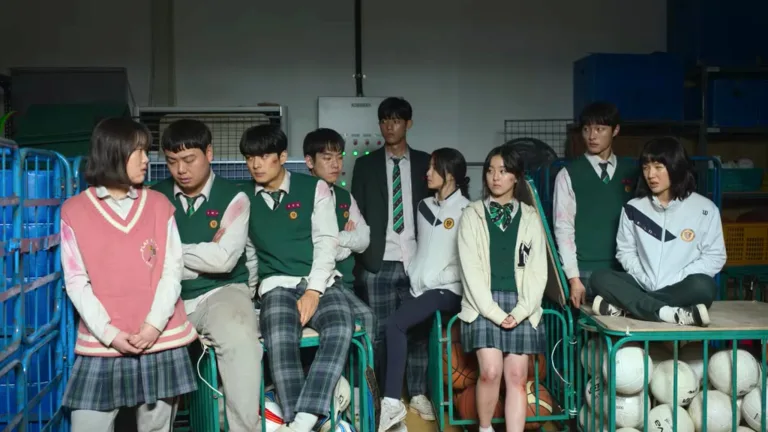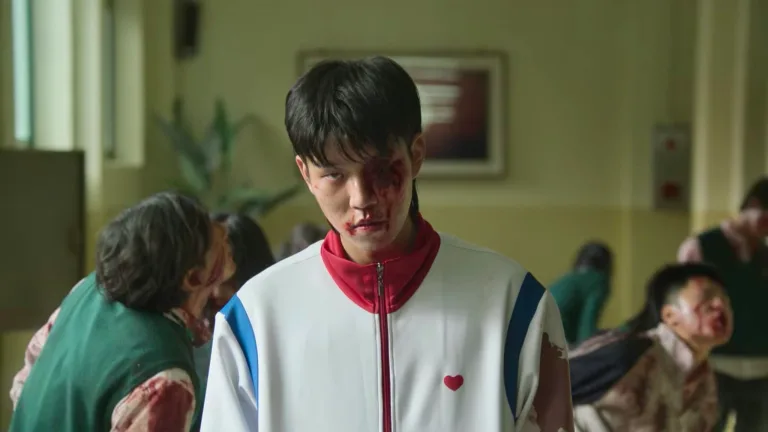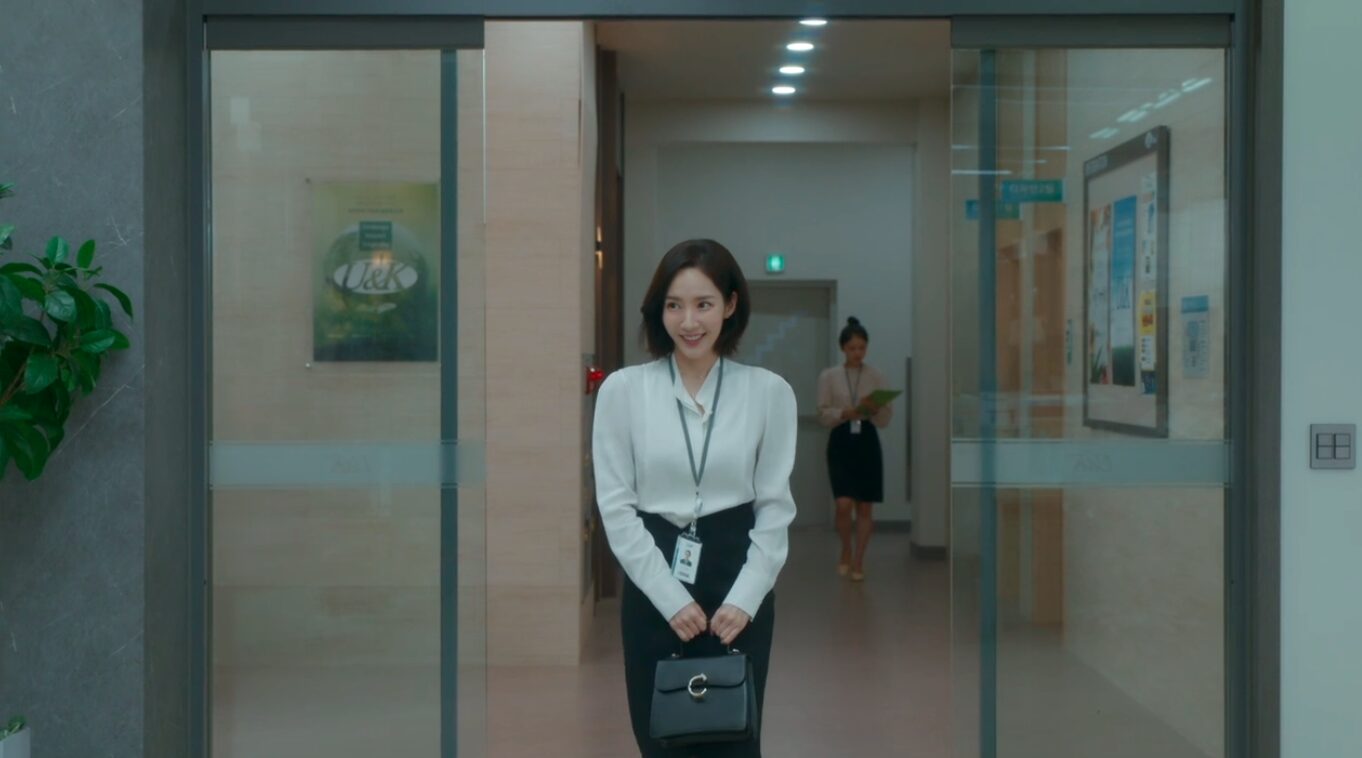Hatred is contagious. But so is trust.
Nam On-joo, All of Us Are Dead

In 2019, Netflix cancelled the American post-apocalyptic series, Daybreak, after only one season. Almost avant-garde in its portrayal of modern teen life in the backdrop of a holocaust, it was notable for its unrelenting critique of the horrors of school life as a modern American student.
If there was a reason for Daybreak’s cancellation, it’s possible that an American audience raised on a diet of patriotic xenophobia in their undead fiction was simply not ready for the reality of what life is like for their youth: faced with existential threats such as climate change and the not-vaguely-existential threat of gun violence.
Daybreak took this reality and made it into an absurdist hellscape of collapsing infrastructure, competing tribes, useless brain-dead adults who will either kill or ignore you, and the unrelenting threat of random violence.
Where Daybreak failed, the Korean, All of Us Are Dead, instead succeeded – at least well enough to get a second season pickup from Netflix. And, like other dramas such as D.P., it does not resile from the violence inherent in societal systems: in this case, schools. Violence is quite literally infectious in this Korean highschool as the problem spirals out of control and eventually consumes the entire city.
While it’s hard to say whether school bullying really is that much worse in Korea when compared to other countries, it is certainly perceived as such and some high-profile incidents have been truly shocking. As a long-time drama watcher, I’ve often been horrified at the level of violence portrayed as normal in Korean school settings. The article linked to in this paragraph tells the true story of the school violence used as the basis for this year’s revenge drama, The Glory.
What’s more shocking than the violence itself, is the way in which dramas portray the indifference of school authorities, teachers and parents. School violence thrives in this Lord of the Flies wasteland of adult disinterest as the public wrings their hands over the issue but allows it to flourish anyway.

All of Us Are Dead perfectly encapsulates this isolation from any caring authority or regulating framework as the school is cut off from the rest of the world by a zombie outbreak. As the students tear each other apart, the adults either succumb or disappear: their unconcern about their students’ wellbeing making their passing unremarkable anyway. For many of the children, these people never cared about their safety before the outbreak. So little has changed.
As the first episode unfolds, the bullies are already indiscriminate and destructive and they haven’t even turned yet. A student has her sexual assault filmed by another bullied student forced to hold the camera. Another tries to approach the school nurse about her secret pregnancy but ends up bearing down in a grotty pubic toilet instead. And the science teacher decides that what his brutalised son needs is a serum to help him fight back since the administration is more concerned with covering up violence than with grappling with it.
Thus a zombie apocalypse is born: one where the wider problem is mirrored in the school but one that also means society at large is too busy dealing with its own violence to worry about what its children are being subjected to.
I heard that in some countries, they mourn adults more than they mourn children. And in others children more than adults. Which do you think our country is?
Choi Nam-ra, All of Us Are Dead
The students are technically being attacked by other students. But it is their disconnection from the outside world and the feeling that they have been abandoned that is most distressing. Choppers arc across the sky but never come to check the school. The authorities in Seoul shut down all communication to stop the spread of fake news so the students can’t call for help even if they could find a phone: they’ve all been confiscated. The few who manage to get a call out get dismissed as cranks and, by the time the rest of society wakes up to the threat, a great deal of damage has already been done.

The virus eventually adapts and produces a thinking zombie. One of the school’s worst bullies, his behaviour now differs little to how it was before. He’s just King Bully of a new gang. In the theme of hatred breeding hatred, his victim – driven almost to suicide before the zombies started lurching around the school oval – now embraces her ability to fight back.
And yet at the core of the show is a little group of the good kids. Neither bullies nor bullied, they band together to survive in a celebration of kindness and shared humanity while they wait in hope that an adult will care enough to come and save them. While some are infected with the new super virus, they are able to overcome their zombie urges to participate as functional humans. Trust, after all, is just as contagious as hatred. So, in the end, the kids are a’ight. They just need us to be better.
Why did you abandon us? You abandoned us.
Lee Soo-hyuk, All of Us Are Dead
All of Us Are Dead is expected to air new episodes in late 2023 or early 2024. Season 1 is available on Netflix



